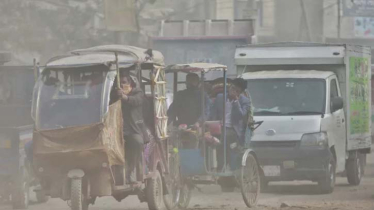
Photo : Collected
The European Union has made available €400,000 or around Tk 50 million in response floods triggered by heavy monsoon rains in northeastern Bangladesh, as well as to landslides in the Rohingya refugee camps in the southern province of Cox’s Bazar in late June.
Crucial assistance will be provided to the most affected people in some of the worst-hit areas.
“The recent disasters highlighted that more efforts need to be put in place to ensure the safety of the most-affected people, especially now that the monsoon season has begun in Bangladesh,” says Anna Orlandini, head of EU humanitarian aid in Bangladesh on Wednesday (10 June).
“The EU funding will not only ensure those affected receive the support they need, but also contribute to the preparedness efforts.”
The assistance will be delivered by EU humanitarian partners already present on the ground, said the Embassy.
Of the total funding, €150 000 will be channelled via the International Federation of Red Cross and Red Crescent Societies (IFRC), as part of the EU’s overall contribution to the latter’s Disaster Response Emergency Fund (DREF).
In northeastern Bangladesh, the EU funding will help the Bangladesh Red Crescent Society (BDRCS) deliver multi-sectoral humanitarian services to the most vulnerable people, according to the Embassy.
These will include the distribution of essential household items, food parcels and cash assistance, as well as first aid and other medical services.
Damaged water points will be repaired, and new ones will be installed.
Meanwhile in Cox’s Bazar, the assistance will focus on repairing shelters damaged by recent landslides and floods in the Rohingya camps, as well as on site development and stabilizing hill slopes to reduce the risk of future landslides.
This funding comes in addition to over €27.8 million that the EU has already allocated this year in humanitarian aid in Bangladesh.
The total amount includes funding released last month in response to tropical cyclone Remal and to recent heatwaves, as well as fires that affected the Rohingya camps this year.
Continuous heavy rainfall since 18 June caused severe flooding in the northeastern Haor region of Bangladesh and disrupted communications.
Approximately 2.5 million people have been affected by the floods, with 1.6 million stranded in Sylhet, Sunamganj, and Moulvibazar districts.
In addition, the rainfall triggered flash floods and over 1,200 landslides in the Cox's Bazar refugee camps in the southeast of the country, causing at least 10 deaths.
Messenger/Sumon








